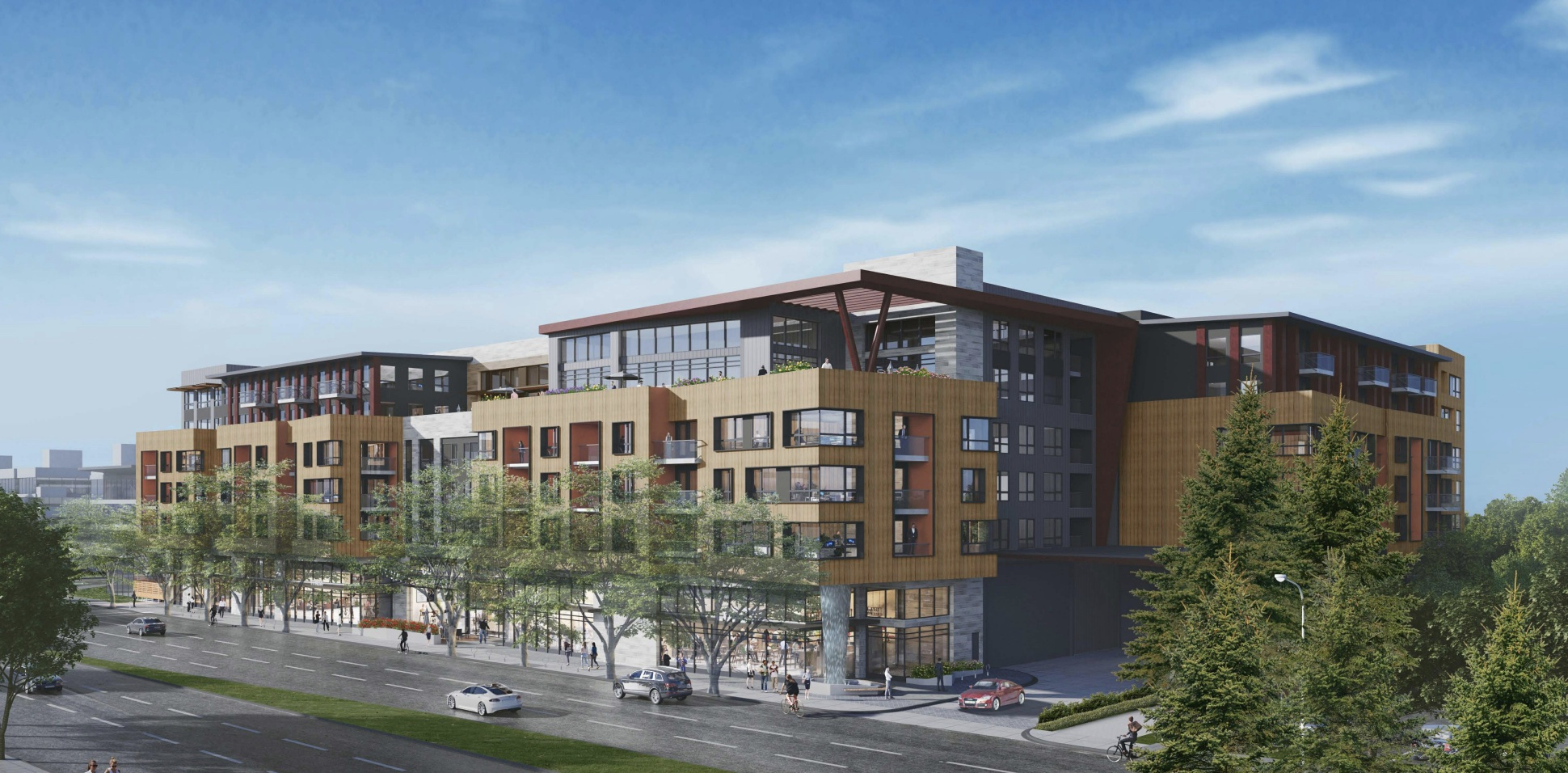Weeks after Palo Alto adopted new zoning rules to allow taller and denser housing projects on a segment of El Camino Real, the city is preparing to loosen the standards even further tonight based on requests from an area developer.
The City Council is scheduled to formally approve tonight a set of zoning revisions that create a "housing focus area" with relaxed height and density limits on El Camino, between Page Mill Road and Matadero Avenue. The council had already approved these changes on Nov. 13 and the Dec. 18 vote was scheduled as a "second reading," a formal step that typically gets made with no discussion or debate.
Now, however, the city is preparing to make additional changes to the new zoning area to accommodate Acclaim Companies, which is looking to build a 380-apartment complex at 3150 El Camino Real, former site of The Fish Market. The Menlo Park-based developer had previously indicated that it is willing to override any potential objections to its project through use of "builder's remedy," a legally murky provision of state code that allows developers to exceed local zoning regulations in areas that do not have a legally compliant plan for adding housing.
While Palo Alto adopted its Housing Element last May, the state Department of Housing and Community Development concluded that it does not meet all state requirements and has demanded further revisions. The new El Camino Real "housing focus area" is among the new programs that the city is introducing as part of the latest revision in a bid to both encourage housing and get its housing plan approved in the next iteration of the state's review.
The new rules raise the height limit for new developments from 50 feet to 85 feet and increase the allowed density on this El Camino segment to a floor-area-ratio of 4.0. They also impose new rules to limit the visual impact of the taller buildings, including a requirement that the upper stories get set back from the El Camino frontage.
The new standards would have largely accommodated the project from Acclaim Companies, which has a proposed height of 84 feet and two levels of underground parking. Last week, however, the council heard from Acclaim representative Gary Johnson, who urged the council to make additional tweaks to the area's zoning standards, including further relaxation of density limits.
One change is raising the height at which a step-back is required along El Camino Real from 55 feet to 59 feet. Another is raising the floor-area-ratio (a measure of density) from 4.0 to 4.5, according to staff.
"We're not adding any above ground usable floor area to the project," Johnson told the council on Dec. 11. "If we were forced to comply with 4.0 FAR, this would require a significant reduction in housing units."
Johnson also requested that the city reconsider a requirement that any new building that has a façade longer than 250 feet include elements that break up this façade. This "modulation" requirement goes beyond what is normally required in the city's "objective standards," its recently adopted design rules for new developments, according to planning staff.
Johnson had suggested that requiring this façade break for the project at 3150 El Camino Real would effectively require the developer to split the project into two buildings.
"If we were to have to build two separate buildings, it would significantly reduce our units and make the project financially infeasible," Johnson said.
According to a report from the Department of Planning Department, staff had met with Acclaim representatives over the past week and agreed to modify the new ordinance to "omit the more restrictive building modulation standard." The council will have a chance to formally make the change on Dec. 18, when it considers further zoning revisions to its new housing focus area.
While city planners appear willing to give Acclaim what it wants, they are skeptical of the developer's claims that sticking with the 55-foot step-back height would make the project infeasible. The new report notes that the developer can, for example, choose to reduce the "generous" heights in the first and second floor spaces, noting that they would not have retail use (which tends to warrant a greater height).
"While the applicant has professed that it is simply not feasible to comply with the 55-foot step-back height, staff believe there are likely creative solutions that would allow a housing development at this scale, location and with a comparable number of units, based on the Housing Focus Area proposed development standards," the report states.



Comments